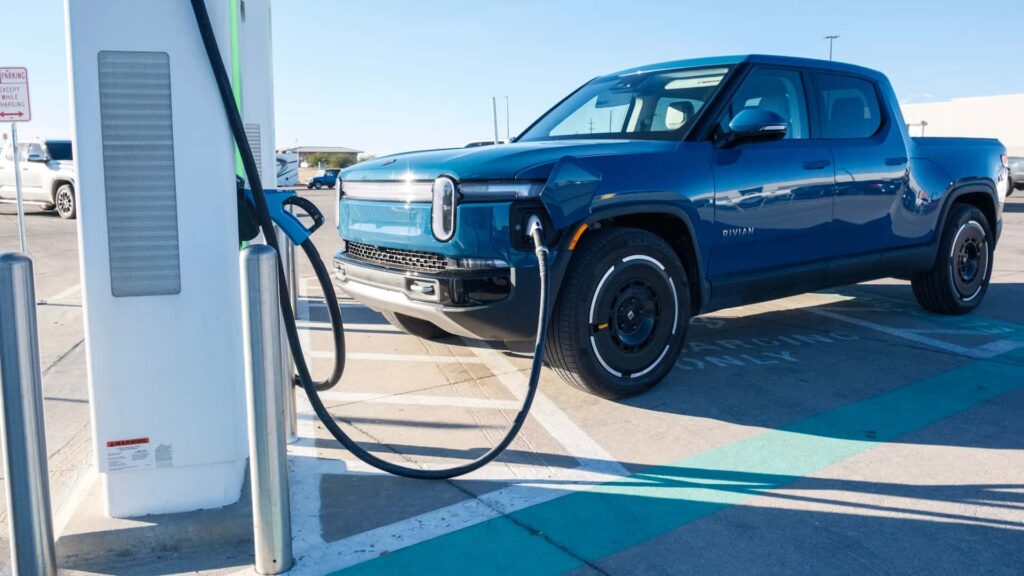Rivian, the California-based electric vehicle startup, has taken proactive measures to mitigate the impact of import tariffs imposed by the Trump administration. Reports suggest that the company strategically stockpiled high-voltage batteries to avoid potential price hikes and supply chain disruptions.
Last year, Rivian initiated the process by acquiring a supply of lithium iron phosphate (LFP) battery cells from China’s Gotion High-Tech Co. These LFP cells are utilized in Rivian’s Commercial Van (RCV) and base versions of the R1S and R1T passenger EVs. To cover the shipment costs, Rivian made upfront payments, while Gotion agreed to maintain its own stockpile in the United States.
Additionally, Rivian collaborated with Samsung SDI to ship a significant quantity of lithium-ion nickel manganese cobalt (NMC) batteries from South Korea to the U.S. These NMC batteries are used in the more powerful variants of the R1S and R1T electric vehicles.
Looking ahead, Rivian is gearing up for the production of its smaller R2 electric SUV at its manufacturing facility in Normal, Illinois. The company has secured a deal with LG Energy Solution for U.S.-made cylindrical cells with enhanced capacity, which will be six times greater than the current cells. This strategic partnership will help Rivian address its battery supply challenges in the future.
Although Rivian’s battery stockpiling strategy has not been officially confirmed by company officials, it reflects a prudent approach to safeguard against potential disruptions in the supply chain. By securing batteries in advance, Rivian can ensure a smooth production process and maintain stable pricing for its customers.
In 2024, Rivian achieved record-breaking sales of 51,579 vehicles, including the R1S SUV, R1T pickup, and RCV van. Notably, the company sold approximately 13,000 electric vans, outperforming competitors like Ford E-Transit and Mercedes eSprinter. With a strong sales performance and a strategic battery procurement strategy in place, Rivian is well-positioned to navigate the challenges of the EV market and continue its growth trajectory in the coming years.

